Ghana, often referred to as the “Gateway to West Africa,” is a vibrant and culturally rich nation located on the western coast of the continent. Known for its diverse landscapes, rich history, and warm-hearted people, Ghana offers a unique blend of natural beauty and cultural experiences.
From its bustling cities to serene coastlines, the country invites travelers to explore its heritage and traditions. The capital, Accra, is a dynamic hub of activity, reflecting Ghana’s growth and development while showcasing its historical significance. As you journey through this enchanting nation, you’ll discover the warmth of its people and the richness of its culture.
Table of Contents
Geography
Ghana is situated in West Africa, covering an area of approximately 238,533 square kilometers. It is bordered by Côte d’Ivoire to the west, Burkina Faso to the north, Togo to the east, and the Gulf of Guinea to the south. The country features a diverse geography that includes coastal plains, rolling hills, and savannahs, making it a unique destination for nature lovers.
The coastline stretches for about 540 kilometers, featuring beautiful beaches and lagoons. The landscape of Ghana varies from the northern regions, characterized by savannah and grasslands, to the lush greenery of the forested areas in the south. The Volta River, one of the longest rivers in Africa, flows through the country and creates the stunning Lake Volta, which is one of the largest artificial lakes in the world.
Ghana experiences a tropical climate with two main seasons: a wet season from April to October and a dry season from November to March. This climate supports a rich biodiversity, including numerous plant and animal species that inhabit the country’s national parks and reserves.
States of Ghana
Ghana is divided into 16 administrative regions, not states. These regions are further subdivided into districts. Here is a table listing the 16 administrative regions of Ghana along with the districts included in each region:
| No. | Region | Districts Included |
|---|---|---|
| 1 | Greater Accra | Accra Metropolis, Ada East, Ada West, Adentan, Ashaiman, Ga Central, Ga East, Ga North, Ga South, Ga West, Kpone Katamanso, La Dade Kotopon, La Nkwantanang-Madina, Ledzokuku, Ningo-Prampram, Shai Osudoku, Tema, Weija Gbawe |
| 2 | Ashanti | Adansi North, Adansi South, Afigya-Kwabre, Ahafo Ano North, Ahafo Ano South, Amansie Central, Amansie East, Amansie West, Asante Akim Central, Asante Akim North, Asante Akim South, Atwima Kwanwoma, Atwima Mponua, Atwima Nwabiagya, Bekwai, Bosome Freho, Bosomtwe, Ejisu, Ejura-Sekyedumase, Juaben, Kumasi Metropolis, Kwabre East, Mampong, Obuasi, Offinso, Sekyere Afram Plains, Sekyere Central, Sekyere East, Sekyere Kumawu, Sekyere South |
| 3 | Central | Abura-Asebu-Kwamankese, Agona East, Agona West, Ajumako-Enyan-Esiam, Asikuma-Odoben-Brakwa, Assin North, Assin South, Awutu Senya, Awutu Senya East, Cape Coast Metropolis, Effutu, Ekumfi, Gomoa Central, Gomoa East, Gomoa West, Komenda-Edina-Eguafo-Abirem, Mfantsiman, Twifo Ati-Morkwa, Twifo-Hemang-Lower Denkyira, Upper Denkyira East, Upper Denkyira West |
| 4 | Western | Ahanta West, Amenfi Central, Amenfi East, Amenfi West, Effia-Kwesimintsim, Ellembelle, Jomoro, Mpohor, Nzema East, Prestea-Huni Valley, Sekondi-Takoradi Metropolis, Shama, Tarkwa-Nsuaem, Wassa Amenfi West, Wassa East |
| 5 | Western North | Aowin, Bibiani-Anhwiaso-Bekwai, Bia East, Bia West, Juaboso, Sefwi Akontombra, Sefwi-Wiawso, Suaman |
| 6 | Eastern | Akuapim South, Akuapim North, Akyemansa, Asuogyaman, Atiwa East, Atiwa West, Ayensuano, Birim Central, Birim North, Birim South, Denkyembour, Fanteakwa North, Fanteakwa South, Kwahu Afram Plains North, Kwahu Afram Plains South, Kwahu East, Kwahu South, Kwahu West, Lower Manya Krobo, New Juaben North, New Juaben South, Nsawam-Adoagyiri, Suhum, Upper Manya Krobo, Yilo Krobo |
| 7 | Volta | Adaklu, Afadzato South, Agotime Ziope, Akatsi North, Akatsi South, Central Tongu, Ho West, Hohoe, Ketu North, Ketu South, Kpando, Krachi East, Krachi Nchumuru, Krachi West, North Dayi, North Tongu, South Dayi, South Tongu |
| 8 | Oti | Biakoye, Jasikan, Kadjebi, Krachi East, Krachi Nchumuru, Krachi West, Nkwanta North, Nkwanta South |
| 9 | Northern | Bimbilla, Bole, Kpandai, Kumbungu, Mion, Nanton, Saboba, Sagnerigu, Salaga North, Salaga South, Sawla-Tuna-Kalba, Savelugu, Tamale Metropolis, Tatale Sangule, Tolon, Yendi, Zabzugu |
| 10 | North East | Bunkpurugu-Nyankpanduri, Chereponi, East Mamprusi, Mamprugu Moagduri, West Mamprusi, Yunyoo-Nasuan |
| 11 | Savannah | Bole, Central Gonja, East Gonja, North Gonja, North East Gonja, West Gonja, West Gonja |
| 12 | Upper East | Bawku Municipal, Bawku West, Binduri, Bolgatanga Municipal, Bongo, Builsa North, Builsa South, Garu, Kassena Nankana East, Kassena Nankana West, Nabdam, Pusiga, Talensi |
| 13 | Upper West | Daffiama Bussie Issa, Jirapa, Lambussie Karni, Lawra, Nadowli Kaleo, Nandom, Sissala East, Sissala West, Wa East, Wa Municipal, Wa West |
| 14 | Bono | Banda, Berekum East, Berekum West, Dormaa Central, Dormaa East, Dormaa West, Jaman North, Jaman South, Sunyani Municipal, Sunyani West, Tain, Wenchi |
| 15 | Bono East | Atebubu-Amantin, Kintampo North, Kintampo South, Nkoranza North, Nkoranza South, Pru East, Pru West, Sene East, Sene West, Techiman Municipal, Techiman North |
| 16 | Ahafo | Asunafo North, Asunafo South, Asutifi North, Asutifi South, Tano North, Tano South |
History
Ghana has a rich and complex history that dates back thousands of years. The region was home to several ancient kingdoms, including the Ashanti Empire and the Fante Confederacy, which thrived on trade, agriculture, and cultural exchange. The name “Ghana” is derived from the ancient Ghana Empire, which was located further north and known for its wealth and influence.
In the late 15th century, European explorers arrived, and the region became a significant center for the transatlantic slave trade. The British established control over the Gold Coast in the 19th century, exploiting its resources and using it as a trading hub. This period was marked by resistance from local leaders and communities, leading to a series of conflicts.
Ghana became the first sub-Saharan African country to gain independence from colonial rule on March 6, 1957, under the leadership of Kwame Nkrumah. Nkrumah’s vision was to unite Africa and promote pan-Africanism, and he played a significant role in advocating for the rights and dignity of African nations.
Following Nkrumah’s overthrow in 1966, Ghana experienced political instability, with a series of military coups and changes in government. However, the country gradually transitioned to a democratic system in the 1990s, and today, it is considered one of the most stable democracies in Africa.
Top Ten Must-Visit Destinations
1. Accra

Accra, the bustling capital city of Ghana, is a vibrant hub of culture, commerce, and history. Visitors can explore attractions such as the Kwame Nkrumah Mausoleum, the W.E.B. Du Bois Center, and the bustling Makola Market. The city’s rich history and diverse neighborhoods make it an exciting destination for travelers.
2. Cape Coast
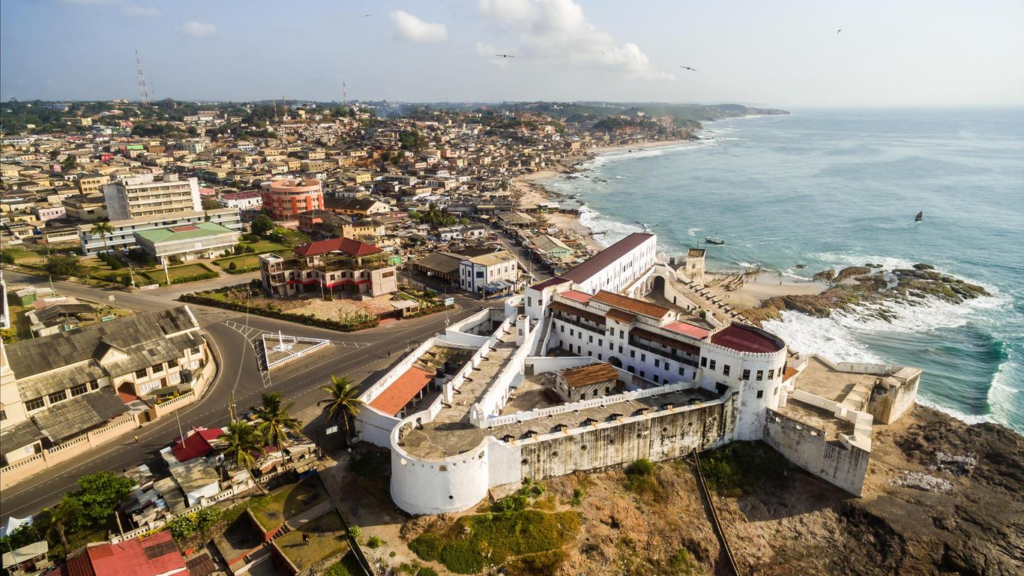
Cape Coast is known for its historical significance and beautiful beaches. The Cape Coast Castle, a UNESCO World Heritage Site, is a powerful reminder of the transatlantic slave trade. Visitors can explore the castle and learn about its history while enjoying the picturesque coastline.
3. Elmina

Elmina is home to the Elmina Castle, the oldest European structure in sub-Saharan Africa. The castle offers insights into Ghana’s colonial past and the slave trade. The charming fishing village and its beautiful beaches provide a peaceful retreat for visitors.
4. Kakum National Park
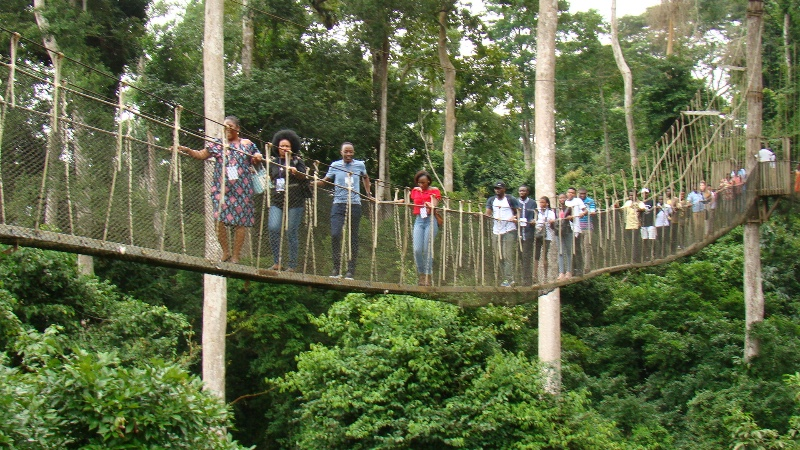
Kakum National Park is a stunning rainforest reserve known for its rich biodiversity. Visitors can embark on canopy walks above the treetops, where they can spot various bird species and other wildlife. The park offers a unique opportunity to experience Ghana’s natural beauty.
5. Mole National Park

Mole National Park is Ghana’s largest wildlife reserve, home to elephants, antelopes, and various bird species. Visitors can take guided safaris to observe wildlife in their natural habitat and enjoy the stunning landscapes of the park.
6. Kumasi

Kumasi, the capital of the Ashanti Region, is known for its rich cultural heritage and history. The Manhyia Palace, home to the Asantehene (king of the Ashanti people), offers insights into the traditions and customs of the Ashanti Kingdom. The Kejetia Market is a bustling hub of trade and commerce.
7. Volta Lake
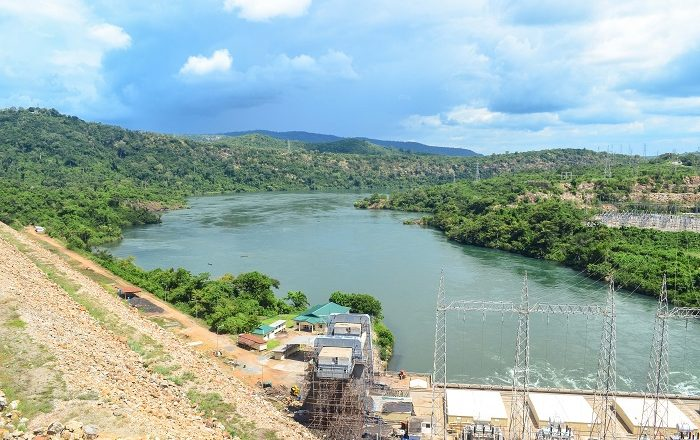
Volta Lake, one of the largest artificial lakes in the world, is a picturesque destination for water sports and relaxation. Visitors can enjoy boat rides, fishing, and exploring the surrounding villages, experiencing the local culture and hospitality.
8. Nzulezo
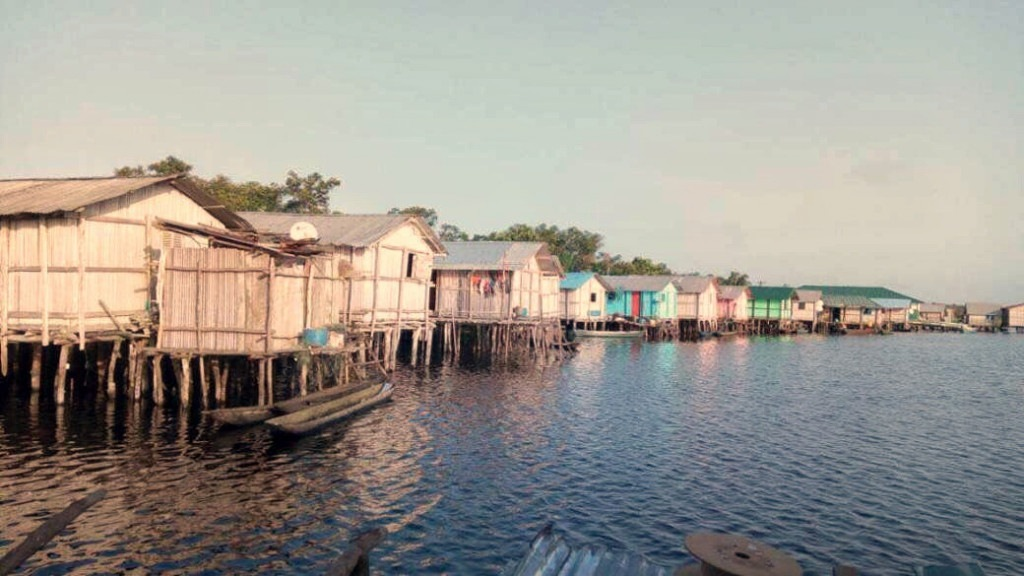
Nzulezo is a unique stilt village located on Lake Tadane. Visitors can take canoe rides to reach the village, which is known for its traditional way of life and stunning scenery. The village offers a glimpse into the unique culture of the people living on the lake.
9. Ankasa Conservation Area
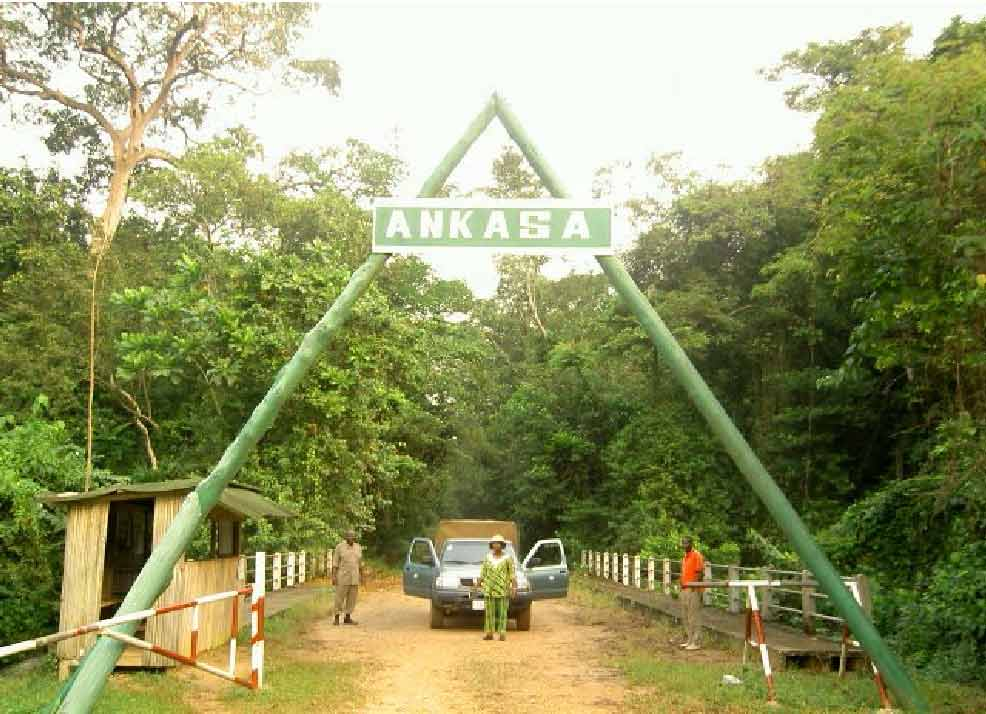
Ankasa Conservation Area is a biodiverse rainforest reserve that offers opportunities for hiking and wildlife observation. The lush landscapes and rich flora and fauna make it a great destination for nature enthusiasts and adventure seekers.
10. Paga Crocodile Pond
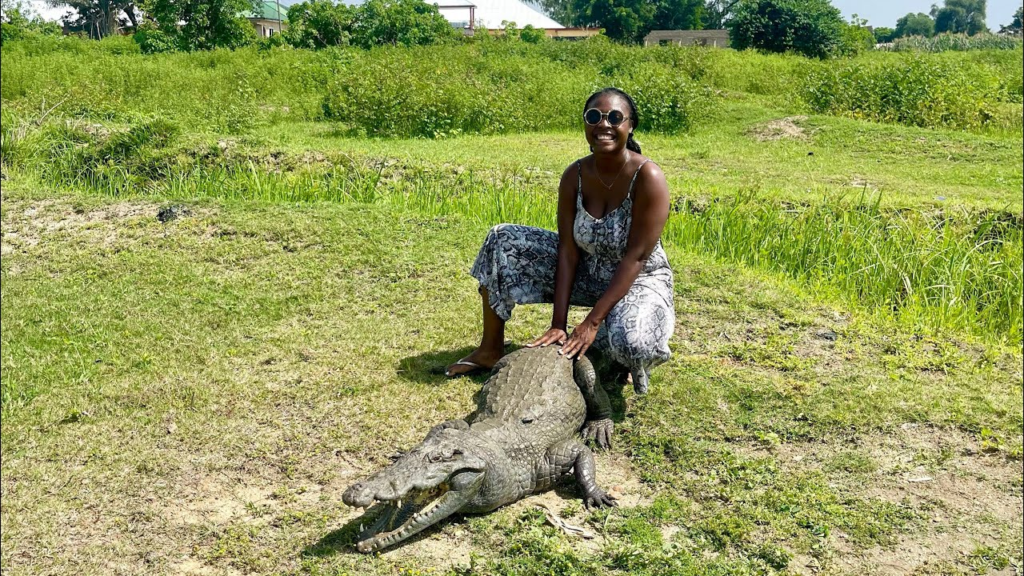
Paga Crocodile Pond is a unique attraction where visitors can interact with friendly crocodiles. The pond is home to sacred crocodiles that are revered by the local community. Guided tours provide insights into the significance of these creatures in the culture of the people.
Culture
Ghana boasts a rich cultural heritage influenced by various ethnic groups, including the Akan, Mole-Dagbon, Ewe, and Ga. The country’s diversity is reflected in its languages, traditions, music, and art. English is the official language, but many indigenous languages, such as Twi, Ewe, and Dagbani, are widely spoken.
Traditional music and dance play a vital role in Ghanaian culture, with genres such as highlife, hiplife, and traditional drumming. Festivals and ceremonies are often accompanied by vibrant performances, showcasing the artistic talents of the people. The annual Homowo Festival, celebrated by the Ga people, is a colorful event that involves feasting, music, and traditional rites.
Ghana is known for its craftsmanship, particularly in textiles, pottery, and wood carving. The vibrant kente cloth, made from silk and cotton, is a symbol of Ghanaian identity and is often worn during special occasions. Artisans in various regions create beautiful handmade products that reflect the country’s cultural heritage.
Festivals
Ghana is known for its lively festivals, which celebrate its rich cultural traditions and heritage. One of the most significant festivals is the Homowo Festival, celebrated by the Ga people to commemorate a historical famine. The festival features traditional music, dance, and a variety of local dishes, creating a festive atmosphere throughout the city of Accra.
Another important celebration is the Aboakyere Festival, held by the Effutu people in Winneba. This festival includes a unique deer-hunting competition, traditional drumming, and colorful parades, attracting locals and tourists alike. The Odwira Festival, celebrated by the Akan people, is a time for purification and thanksgiving, featuring traditional rituals, dances, and feasting.
Ghana also celebrates its independence on March 6th each year, commemorating the country’s liberation from colonial rule. Parades, cultural performances, and speeches reflect the nation’s pride in its history and progress.
Economy
Ghana’s economy is diverse, with agriculture, mining, and services playing significant roles. Agriculture employs a large portion of the population, with crops such as cocoa, maize, yams, and cashews being major contributors to the economy. Ghana is one of the world’s leading cocoa producers, and cocoa exports are vital for the country’s economic growth.
Mining, particularly gold mining, is another crucial sector, with Ghana being one of the top gold producers in Africa. The government has been working to diversify the economy and attract foreign investment in various sectors, including tourism and manufacturing.
The services sector, including banking, telecommunications, and retail, is rapidly growing, contributing to Ghana’s overall economic development. The government aims to promote sustainable economic growth and improve infrastructure to enhance the quality of life for its citizens.
Cuisine
Ghanaian cuisine is a delightful fusion of flavors and ingredients, influenced by local agricultural practices and cultural traditions. Rice, cassava, yams, and plantains are staple foods, often accompanied by a variety of stews and sauces. Jollof rice, a popular dish made with rice, tomatoes, and spices, is a favorite at celebrations and gatherings.
Fufu, a starchy side made from cassava or yams, is commonly served with soups and stews. Waakye, a dish made from rice and beans, is a popular street food that showcases the country’s culinary diversity. Fish, meat, and vegetables are often used in traditional dishes, reflecting the use of fresh, local ingredients.
Ghanaian meals are typically enjoyed communally, emphasizing the importance of sharing and togetherness in the culture. Traditional meals are often accompanied by lively conversations and celebrations, creating a warm and inviting atmosphere.
Top Eight Most Famous Food
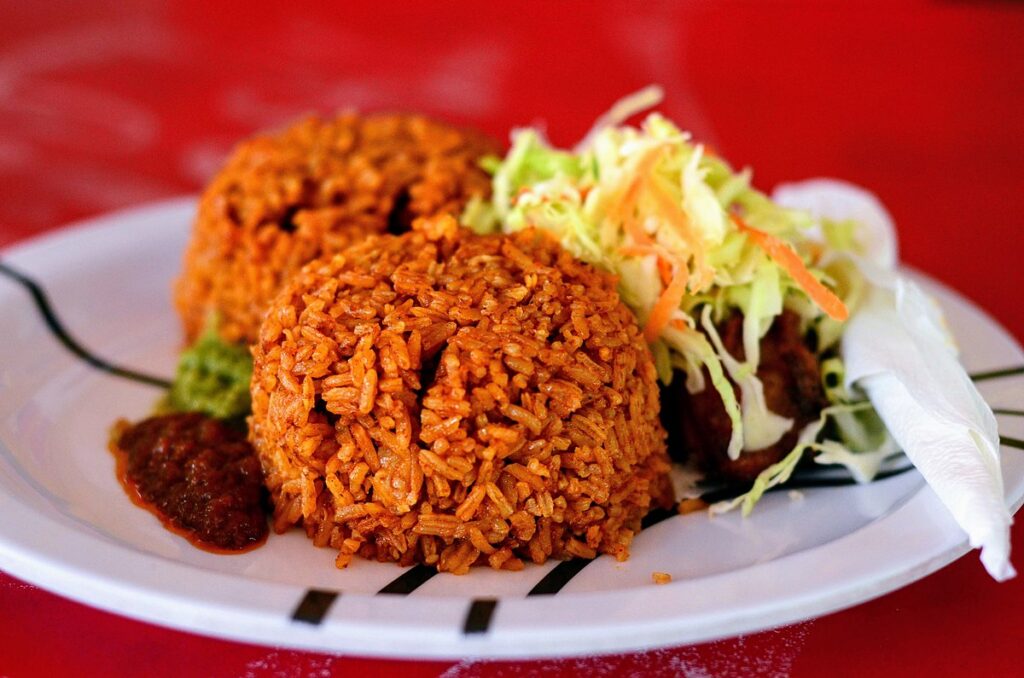
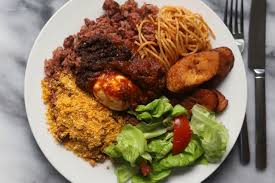

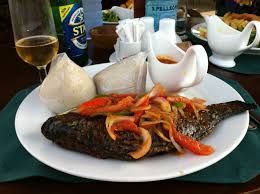
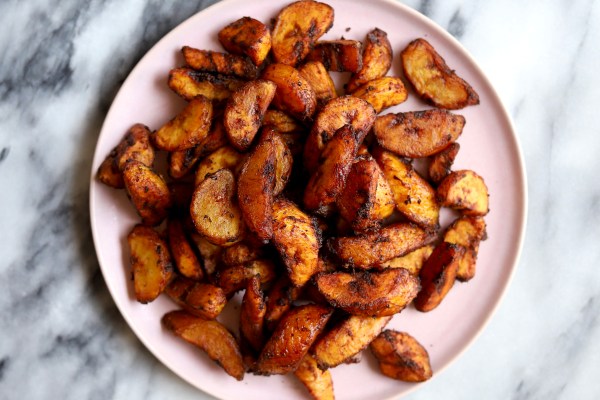
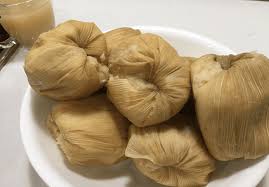
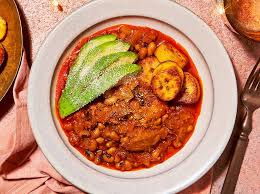
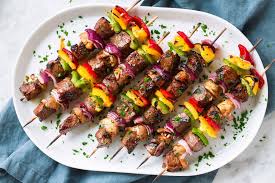
Interesting Facts
- Ghana was the first sub-Saharan African country to gain independence from colonial rule in 1957.
- The country is one of the world’s leading producers of cocoa.
- Ghana is home to over 100 ethnic groups, each with its own language and culture.
- The capital city, Accra, is known for its vibrant street markets and nightlife.
- Lake Volta in Ghana is one of the largest artificial lakes in the world.
- The Ghanaian flag features three horizontal stripes of red, yellow, and green, with a black star in the center.
- Kente cloth, a traditional Ghanaian textile, is recognized worldwide for its colorful patterns.
- The country celebrates a variety of festivals throughout the year, showcasing its rich cultural heritage.
- Ghana has a diverse range of wildlife, including elephants, lions, and numerous bird species.
- The country is known for its warm hospitality and welcoming spirit.
Conclusion
Ghana is a vibrant nation that offers a unique blend of history, culture, and natural beauty. From its rich heritage and diverse landscapes to its delicious cuisine and lively festivals, Ghana invites travelers to explore and experience its many facets. Whether you’re visiting historical sites, enjoying the warmth of its people, or savoring traditional dishes, Ghana promises an unforgettable journey through the heart of West Africa.

